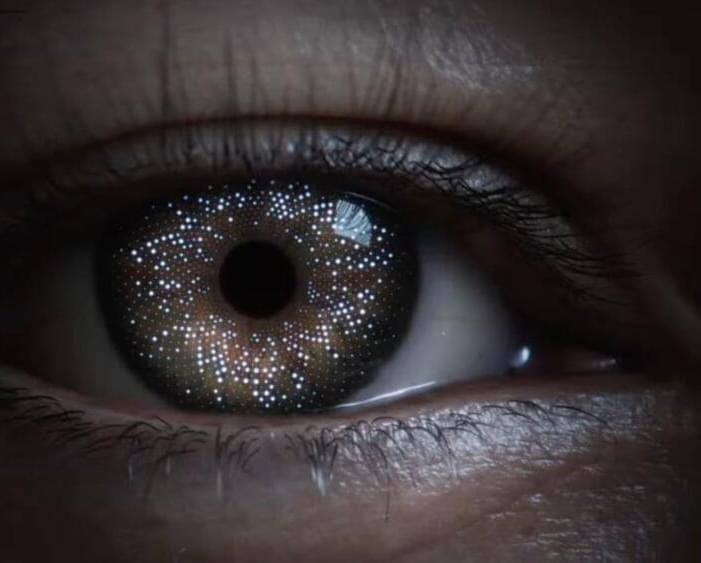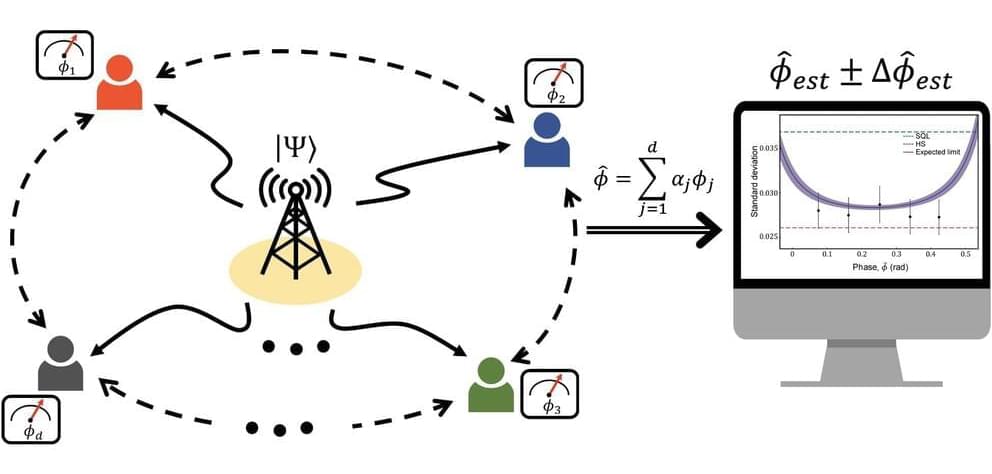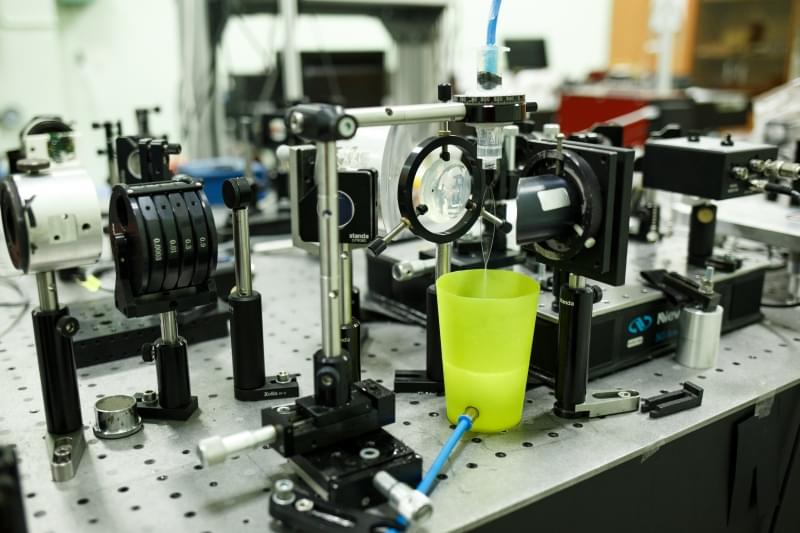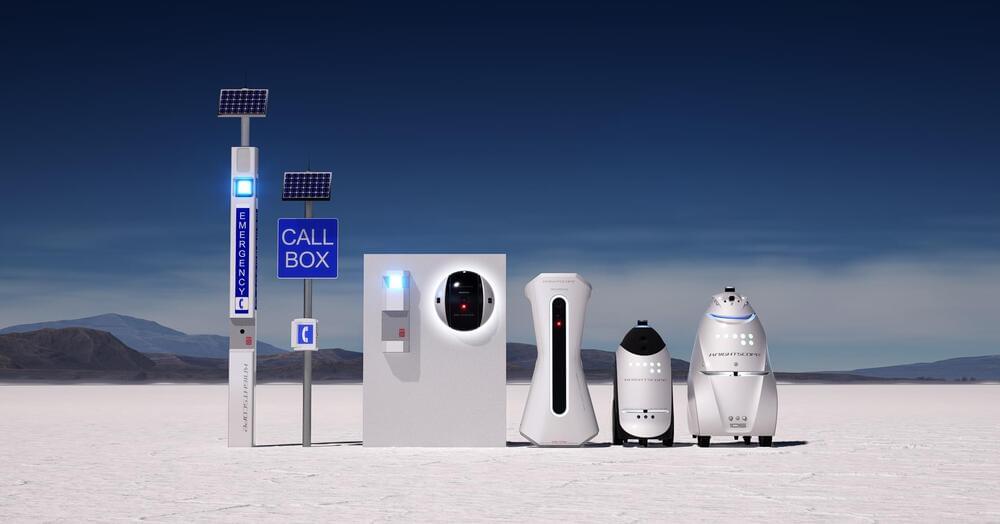The Apple Vision Pro uses Optic ID as biometric authentication for payments and certain visionOS actions. Here’s how it works, and how to use it.


BlackSky is close to completing its SMART satellite network which uses AI to revolutionize global monitoring and security with unprecedented efficiency.
BlackSky has won Phase III of IARPA’s SMART program to develop the U.S. agency’s AI-driven satellites for global monitoring.

The need to quash outbreaks, quickly create medicines, stress-proof crops and fend off other 21st century threats is providing a lucrative arena for biotech companies to sell their services.
Why it matters: But the infrastructure to support such ambitions is increasingly recognized by the U.S., China and other countries as a linchpin of national security and economic strategy, putting it at the center of geopolitics.

A collaborative research team co-led by Professor Shuang ZHANG, the Interim Head of the Department of Physics, The University of Hong Kong (HKU), along with Professor Qing DAI from National Center for Nanoscience and Technology, China, has introduced a solution to a prevalent issue in the realm of nanophotonics – the study of light at an extremely small scale. Their findings, recently published in the prestigious academic journal Nature Materials, propose a synthetic complex frequency wave (CFW) approach to address optical loss in polariton propagation. These findings offer practical solutions such as more efficient light-based devices for faster and more compact data storage and processing in devices such as computer chips and data storage devices, and improved accuracy in sensors, imaging techniques, and security systems.
Surface plasmon polaritons and phonon polaritons offer advantages such as efficient energy storage, local field enhancement, and high sensitivities, benefitting from their ability to confine light at small scales. However, their practical applications are hindered by the issue of ohmic loss, which causes energy dissipation when interacting with natural materials.
Over the past three decades, this limitation has impeded progress in nanophotonics for sensing, superimaging, and nanophotonic circuits. Overcoming ohmic loss would significantly enhance device performance, enabling advancement in sensing technology, high-resolution imaging, and advanced nanophotonic circuits.

A research team has succeeded in implementing a distributed quantum sensor that can measure multiple spatially distributed physical quantities with high precision beyond the standard quantum limit with few resources. Their findings are published in the journal Nature Communications.
Sharing the exact time between distant locations is becoming increasingly important in all areas of our lives, including finance, telecommunications, security, and other fields that require improved accuracy and precision in sending and receiving data.
Quantum phenomena such as superposition and entanglement can be used to more precisely measure the time of different clocks in two distant spaces. Similarly, if you have two physical quantities, one in Seoul and one in Busan, you can share the entanglement state in Seoul and Busan and then measure the two physical quantities simultaneously with greater precision than if you measure the physical quantities in Seoul and Busan separately.


Polar liquids, such as water, are powerful absorbents of electromagnetic waves in the terahertz range. For that reason, they were never considered as potential THz radiation sources. Last year, researchers from ITMO University and the University of Rochester proved that liquid-based radiation sources can be no less effective than traditional ones. In their new study, the staff of ITMO University’s Laboratory of Femtosecond Optics and Femtotechnologies present their research on the generation of THz radiation in liquid jets of various kinds. In the future, these findings can be used to create new alternative sources of THz radiation. The research was published in Optics Express.
Terahertz technologies: spectroscopy, security, biomedicine, and non-destructive diagnostics
Terahertz radiation is a type of electromagnetic radiation located within the frequency spectrum between infrared and radio. It passes well through a variety of materials, such as wood, plastic, and ceramics.

LONDON (AP) — U.K. health officials on Monday urged millions of parents to book their children for missed measles, mumps and rubella shots during a sharp increase in the number of measles cases and the lowest vaccination rates in a decade.
The National Health Service is launching a publicity campaign after figures showed there were about 250 confirmed measles cases in parts of England last year. Most cases were in children under 10 years old.
The combined measles, mumps and rubella, or MMR, vaccine is offered in the U.K. in two doses to all children, first at 12 months and then again at 3 years. Vaccination rates have dropped to about 85% nationally, and far lower in parts of London, according to U.K. Health Security Agency chief executive Jenny Harries.

Researchers have created a novel technology utilizing meta-optical devices for thermal imaging. This method offers more detailed information about the objects being imaged, potentially expanding thermal imaging applications in autonomous navigation, security, thermography, medical imaging, and remote sensing.
“Our method overcomes the challenges of traditional spectral thermal imagers, which are often bulky and delicate due to their reliance on large filter wheels or interferometers,” said research team leader Zubin Jacob from Purdue University. “We combined meta-optical devices and cutting-edge computational imaging algorithms to create a system that is both compact and robust while also having a large field of view.”
In Optica, Optica Publishing Group’s journal for high-impact research, the authors describe their new spectro-polarimetric decomposition system, which uses a stack of spinning metasurfaces to break down thermal light into its spectral and polarimetric components. This allows the imaging system to capture the spectral and polarization details of thermal radiation in addition to the intensity information that is acquired with traditional thermal imaging.
